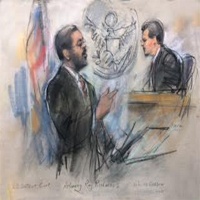River Rouge Criminal Lawyer, Michigan, page 2
Sponsored Law Firm
-
 x
x

Click For More Info:
-
Richards & Associates, PLLC
200 East Big Beaver Road Troy, MI 48083» view mapCriminal Defense Accomplished Criminal Defense Attorney
If you face criminal charges, you deserve an experienced defense lawyer who has a reputation for winning the tough cases.
800-844-5250
Elizabeth Lea Disanto
Dispute Resolution, Lawsuit & Dispute, Family Law, Criminal
Status: In Good Standing Licensed: 23 Years
Robert J. Burger
Other, Estate Planning, Criminal, Bankruptcy & Debt
Status: In Good Standing Licensed: 37 Years
FREE CONSULTATION
CONTACTSidney Kraizman
Education, Family Law, Criminal, Constitutional Law
Status: In Good Standing Licensed: 54 Years
Harold Z. Gurewitz
Mass Torts, Grand Jury Proceedings, Federal, Felony, Criminal
Status: In Good Standing Licensed: 54 Years
Robert P. Coutts
Family Law, Criminal, Credit & Debt, Bankruptcy
Status: In Good Standing Licensed: 35 Years
Bill Colovos
Litigation, Transportation & Shipping, Criminal, Consumer Rights
Status: In Good Standing Licensed: 39 Years
Margaret Sind Raben
Litigation, White Collar Crime, DUI-DWI, Criminal
Status: In Good Standing Licensed: 38 Years
 Ray Richards Troy, MI
Ray Richards Troy, MI AboutRichards & Associates, PLLC
AboutRichards & Associates, PLLC Practice AreasSpecializations
Practice AreasSpecializations
